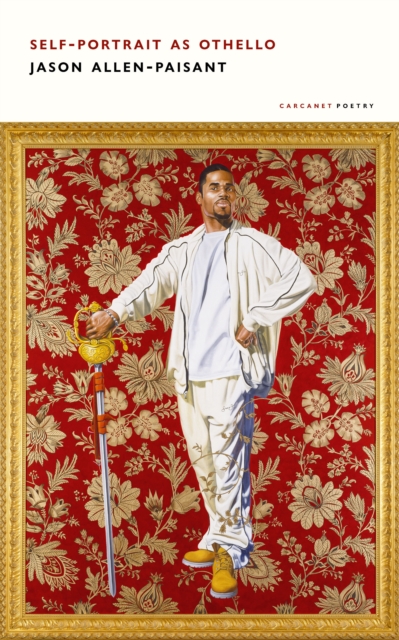Self-Portrait As Othello (TS Eliot Prize 2023, Winner; Forward Prize for Best Collection 2023, Winner)
Jason Allen-Paisant
(Carcanet Poetry, 2023); pbk: £12.99
Ekphrastic poetry is often described as writing ‘about’ art or describing a vivid scene. This description may give the impression that the poet has a passive role in describing the scene, having little control over its context or intent, but this is not always true. The thesis of the piece is pre-made. In Jason Allen-Paisant’s latest collection, Self Portrait As Othello, we see ekphrasis as the active choice of self-examination through the lens of the other. He jumps in and out of the titular painting, looking back on himself through the culture and history that shaped the connection between him and the artwork. The collection intertwines Allen-Paisant’s experiences and the fictionalised character of Othello. As Allen-Paisant travels the world, so does Othello travel in time, appearing through the collective experience of Black men finding selfhood in a society that denies their humanity. In a Carcanet ‘Meet the Author’ podcast, Allen-Paisant describes the thesis of the collection as: “What stories might (Othello) have told had he been written by someone who lived and moved in his type of skin?” Through this connection, Allen-Paisant weaves a considerate, striking narrative of imperialism, alienation, and the denial of the self in the search for belonging, seen through poems such as ‘I sit on the barbeque when the bath water pour’:
Watch me speaking four languages outside the club. Watch me
in Prague among the patina-streaked marble. I am dancingthrough Europe actor and spectator in a field of bodies.
A doing road in Venice, where the black Moor head is placed[.]
Self Portrait as Othello interweaves experimental styles deftly, giving each poem an individual personality while still being a cohesive collection. Allen-Paisant weaves seamlessly. The variety in styles makes the collection engaging to read in sequence, as every piece feels fresh and dynamic, exploring the different aspects of Allen-Paisant’s ekphrastic figuration, drawing out different parts of the narrative, and bringing them into conversation with each other. The layers of history and self-reflection are given breathing room in the individuality of each poem., One of the most powerful examples is in the poem ‘Self Portrait as My Body on an Operating Table’.
am I visible — this is my body
on an operating table?
disown the terror of your laugh I am
a mound
Every possible line in the book is interwoven. From the use of a three-act structure in reference to the titular play to the fact that the titles of the first section are absent from their respective pages and instead compose a poem in the index. It’s a creative use of formatting as an integral part of the poetry. It also ties into Allen-Paisant’s discussion of architecture and landscapes as receptacles of history, left unseen. It also adds intricate details to the book’s unique visual style. Every subsequent read reveals more details and depth to the collection..
‘I am five. I sit on the barbecue’ 17
‘We sit on the barbeque’ 18
‘Tweed-jacketed’ 20
‘I’m going to Paris Mama’ 21
‘I’m going to Paris at last’ 22
‘I call you daddy Bois d‘Ébène’[.] 24
A sense of honesty and vulnerability permeates Self Portrait As Othello, enhanced by how accessible the poems are. There is a lot to dig into, but each work can be read and appreciated; the direct language and focus on a central poetic device, as the exploration of Othello, makes it a pleasure to read for everyone willing to.
I was called bois d‘ébène
I am dismembered
I look for the different parts of myselfin the worlds oceans
in the black blood of Europe’s
Monuments, in their sweat stains[…]
Ellen Harrold


Leave a Reply